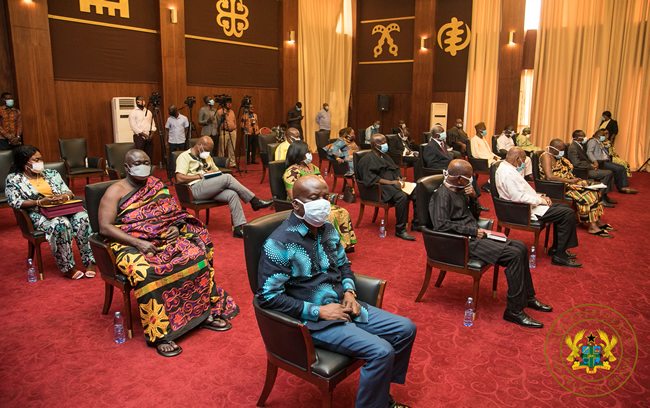In Ghana, the Council of State is often described as a council of elders—a group of wise heads tasked with guiding the president through the thorny thickets of governance.
Established under Article 89 of the 1992 Constitution, this 31-member body is meant to provide guidance and advice to the president, parliament, the judiciary, and other state institutions on issues of national importance.
But as the country holds elections for new members, many Ghanaians are left wondering: is this council a powerhouse of influence or merely a ceremonial echo chamber?
The council’s composition is a curious mix of elected and appointed members. Sixteen regional representatives are elected by delegates from district assemblies, while the president appoints 11 members and, in consultation with parliament, selects three high-profile figures: a former Chief Justice, a former Inspector General of Police, and a former Chief of Defence Staff. Rounding out the group is the President of the National House of Chiefs, who serves as a de facto member.
In total, 14 of the 31 members—45% of the council—are directly or indirectly appointed by the president, raising questions about its independence.
This structure has not gone unchallenged. In 2011, the Constitutional Review Commission, set up by the National Democratic Congress (NDC) under President John Atta Mills, submitted its review report.
While the committee recommended maintaining the council, it also proposed reducing the president’s appointees from 11 to 5 to enhance its independence. The government, in its white paper, accepted the recommendation to retain the council but rejected the reduction of presidential appointees, leaving the balance of power unchanged.
The council’s tenure lasts until the end of the president’s term, ensuring continuity but also tying its fate to the executive’s political cycle.
Its role, however, is far from ceremonial. The council is consulted on key decisions, including the appointment of the Bank of Ghana Governor, the Chief Justice and Supreme Court Justices, the Inspector General of Police, and the Chairperson of the Electoral Commission.
It also advises on presidential pardons, diplomatic appointments, the removal of certain public officials, and legislative bills.
Yet, for all its advisory responsibilities, the council’s influence is not absolute. The Supreme Court has ruled that while the president is required to seek the council’s advice on certain matters, they are not bound to follow it. In other words, the council can advise, but the president can politely—or not so politely—ignore.
This has led critics to argue that the council risks becoming a rubber stamp, especially given the significant number of presidential appointees. Supporters, however, see it as a stabilizing force, offering experienced counsel and a layer of oversight in a young democracy.
As Ghana continues to strengthen its democratic institutions, the role of the Council of State remains a topic of lively debate. Is it a vital check on presidential power, or merely a ceremonial body with a fancy title?
The answer may lie in how future presidents choose to engage with it—or how often they choose to ignore it. For now, the council remains a curious blend of tradition and politics.
Latest Stories
-
Association of Automobile Artisans unveils national leadership and future plans
2 minutes -
Stop blaming others and admit your failures – Asah-Asante tells Bawumia
6 minutes -
Galamsey battle undermined by politicians’ involvement – Tony Aubynn
7 minutes -
Bono Minister orders NEDCo to tackle intermittent power outages
10 minutes -
Just 22 staff supervising 5,000 students at Accra Academy – Headmaster laments
10 minutes -
NEDCo urges calm as company tackles technical challenges
12 minutes -
MTN Ghana confirms 5,700 customers affected by data breach
16 minutes -
Ahiagbah defends Bawumia, says he speaks from a ‘collective standpoint’ during Thank You Tour
16 minutes -
‘Thank You’ tour could trigger NPP implosion – Boakye Agyarko cautions
19 minutes -
BoG revises end-year inflation target to 12%, insisting forecast is achievable
21 minutes -
Syldem Foundation launches literacy programme for girls
23 minutes -
Scrap L.I. 2462 entirely to fight galamsey – Tony Aubynn urges government
28 minutes -
Take advantage of carbon market potential – Parliament advises businesses
51 minutes -
More specialists, senior nurses leave Goaso Municipal Hospital for greener pastures
57 minutes -
‘This is a campaign relaunch, not a Thank You Tour’ – Dr Arthur Kennedy on Bawumia’s moves
1 hour

